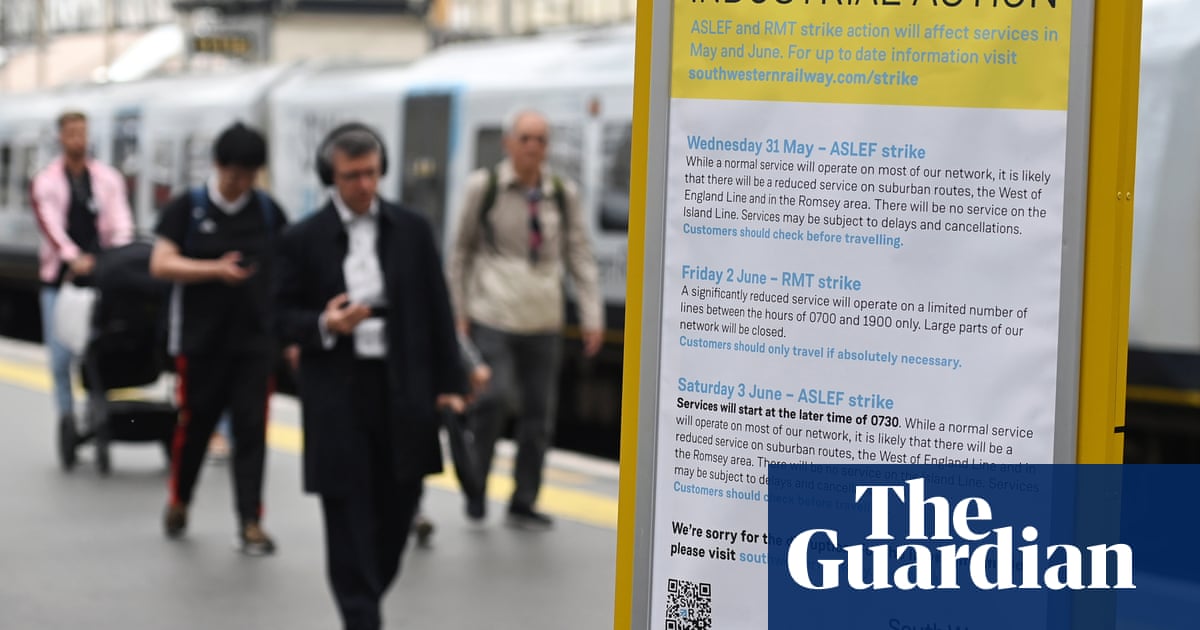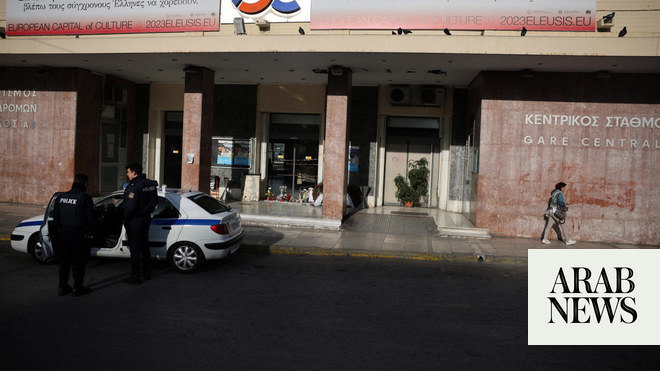
Rail unions have threatened to strike over government plans for an “army” of volunteers at transport hubs to remind travellers to wear a face covering.
The transport secretary, Grant Shapps, announced the policy of using volunteers without consultation according to the RMT union, which condemned moves to put unpaid workers in “safety critical roles”.
Face coverings will be mandatory on public transport in England from 15 June to help stop the transmission of coronavirus as more people go back to work, the government announced on Thursday.
Speaking on Radio 4’s Today programme on Friday, Shapps said passengers would also be encouraged to cover their face when entering bus and train stations with the help of volunteer “journey makers”.
“We are going to have thousands of people from the British Transport Police, Network Rail, Transport for London and actually a whole army of volunteers from a volunteer organisation who are going to be called journey makers, who will help to remind people. They will be wearing purple tabards and they will remind you to put your face covering on,” he said, stressing that the legal requirement applied only when actually on a bus, train or tram.
The RMT general secretary, Mick Cash, said the Department for Transport had “done a backroom deal to recruit unpaid and unskilled workers on our railway without even so much as conversation with rail unions,” and the union would consider a strike ballot.
While staff and unions have welcomed the moves to make face coverings mandatory, they remain concerned about implementation.
Cash said that, despite the use of the volunteers at stations reminding passengers, it was “clear that the government and industry bosses are expecting our members to police this policy”.
He said: “That will put overstretched rail workers right in the frontline once again and will leave them at risk of being abused, assaulted and spat at by aggressive passengers refusing to comply. This policy must be properly risk assessed, with staff fully protected.”
National rail operators appeared unsure of how it would be implemented. One industry figure said companies were concerned about how it would work on long-distance journeys, and at what point masks should be put on at stations or boarding trains. He suggested there could be reluctance among key workers who have travelled throughout lockdown without being obliged to wear a covering.
Another train operator source said: “At the moment we need to digest the new rules and consider how enforcement will work.”
Finn Brennan, an Aslef district organiser with responsibility for London Underground, said the union had called for masks to be worn – but there needed to be more clarity and plans for enforcement.
“Will staff be expected to engage? Will there be confrontations? This should really be done as people come into stations, not as they get on to trains.
“It’s all very well for [Network Rail chair] Peter Hendy and Shapps to compare it to the alcohol ban, but that’s never been effectively enforced.”
Transport for London volunteers will also be handing out single-use face coverings for journeys over the next week before they become mandatory on public transport on 15 June.
The mayor of London, Sadiq Khan, told the BBC that there would be an “element of discretion and good faith”, with young children and people with breathing problems exempt, and the policy relying on “positive peer pressure”. He said commuters should not “take the law into your own hands” if they saw people without face coverings.
Face coverings were “not a panacea”, said Shapps. “However, on balance, because we know that from the 15th of this month, when non-essential retail will reopen and secondary schools, years 10 and 12, will go back, that public transport will for the first time be busier. And it’s not been at this point used by more than about 5% of its usual numbers.”
He said face coverings would not have to be worn in shops because people would not be in close proximity to strangers for a prolonged period. “The big difference is in a shop you may well pass somebody and the guidance acknowledges you might be near somebody for a short period of time, but then you’re going to move on. But the difference on public transport is that you could be next to somebody for 10, 20, 30 minutes.”
Shapps also admitted that the government’s track-and-trace app might not be ready until October. The Guardian revealed on Thursday that Tony Prestedge, the chief operating officer of the NHS test-and-trace scheme, told staff the programme would be “imperfect” at launch, adding that he hoped it would be operational at a world-class level within three to four months.
Prestedge was “specifically” talking about the app, Shapps insisted: “What he said was, as with any app, it gets released and anyone who downloads an app on their phone knows it’s forever being updated and bugs squashed and all the rest of it. Apps are never completed in that sense.”












